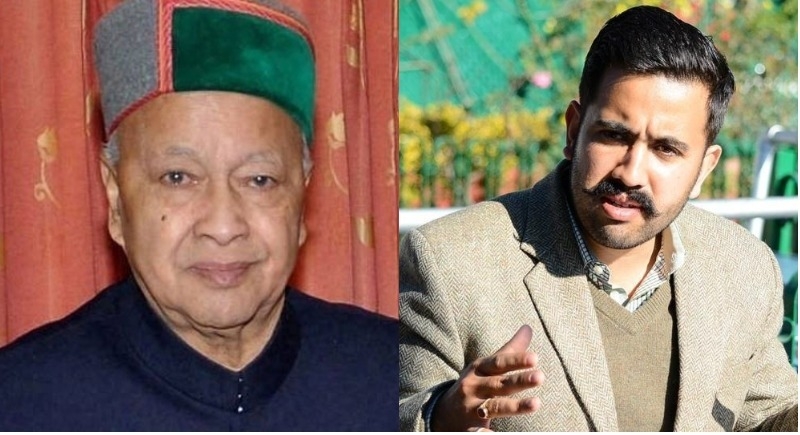ED files charge sheet against former Himachal CM Virbhadra Singh’s son Vikramaditya in money laundering case
New Delhi, July 21: Embarrassment for former CM Virbhadra Singh and his family continues! Notably, the Enforcement Directorate (ED) filed a charge sheet against Virbhadra Singh’s son Vikramaditya in a money laundering case also involving the former Himachal Pradesh chief minister himself on Saturday.

The central probe agency filed a charge sheet against Vikramaditya Singh and two others including Managing Director of Tarani Infrastructure Vakamulla Chandrasekhar and Ram Prakash Bhatia in a money laundering case on the desk of Special Judge Arvind Kumar in Delhi Court.
The charge sheet which was filed by special public prosecutors Nitesh Rana and N K Matta will be fixed for consideration on July 24, when Judge Arvind Kumar will decide on whether to take cognizance of the final report.
Importantly, both Chandrasekhar and Bhatia are also an accused in a CBI case related to money laundering case, along with former Himachal CM Virbhadra Singh, his wife Pratibha Singh and others. On February 2 this year, the ED files a charge sheet against Virbhadra Singh and his wife, Universal Apple Associate owner Chunni Lal Chauhan, Life Insurance Corporation (LIC) agent Anand Chauhan and two other co-accused Prem Raj and Lawan Kumar Roach.
A separate case was filed by the Central Bureau of Investigation (CBI) against Virbhadra Singh, his wife Pratibha Singh and others. The CBI had claimed that Virbhadra Singh had amassed assets worth around Rs 10 crore which were disproportionate to his total income during his tenure as a Union minister.
The matter was transferred by the Supreme Court to the Delhi High Court which, on April 6, 2016, asked the CBI not to arrest Singh and directed him to join the probe. On November 5 last year, the apex court transferred Singh’s plea from the Himachal Pradesh High Court to the Delhi High Court, saying it was not expressing any opinion on the merits of the case, but “simply” transferring the petition “in the interest of justice and to save the institution (judiciary) from any embarrassment”.